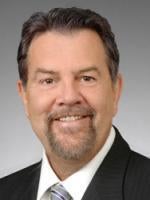On Thursday, November 29th, the U.S. Department of Justice (DOJ) announced changes to its policy known as the “Yates Memo.” That policy, established in 2015 by then-Deputy Attorney General Sally Yates, had required companies to provide DOJ with all relevant information about any individuals involved in misconduct to be eligible to receive any cooperation credit in resolving corporate investigations.
Under the revised policy, to be eligible to receive cooperation credit, companies must provide relevant information about “all individuals substantially involved in or responsible for the misconduct.”
The announcement, made during a speech by Deputy Attorney General Rod Rosenstein, resolves months of speculation regarding how the DOJ would address its policy concerning individual accountability in corporate cases. In announcing the change, Rosenstein reinforced DOJ’s commitment to prosecuting the individuals responsible for corporate misconduct, while acknowledging the shortcomings of the “all or nothing” approach to cooperation that had been DOJ’s prior policy.
Although it remains to be seen, the new policy may have little practical impact in corporate criminal investigations. As Rosenstein acknowledged, the prior policy was not strictly enforced, because in some cases it would have impeded the resolution of cases and wasted resources. In criminal cases, corporations still must “identify every individual who was substantially involved in or responsible for the criminal conduct” to receive cooperation credit. However, the policy no longer requires companies to expend time and resources identifying and collecting information about individuals who are not substantially involved in the misconduct at issue and are therefore unlikely to be prosecuted.
In civil cases, the new DOJ policy seeks to return more discretion to prosecutors. Specifically, DOJ attorneys in civil cases are granted more discretion to accept settlements that remedy the harm and deter future violations, as well as to offer partial cooperation credit to corporations. Corporations still must identify all wrongdoing by senior officials, including senior management and the board of directors, to earn any cooperation credit at all, but attorneys do not have to pursue civil cases against every single employee who may be liable.
For companies faced with internal and government investigations, the practical effect of this policy change should be to allow the company to focus on addressing the misconduct at issue and deal with the key employees who were responsible. The new policy also allows for the possibility of cooperation credit even if companies aren’t able to provide evidence on all relevant individual wrongdoers, either for legal reasons or because they “genuinely cannot get access to certain evidence.” In these situations, the burden falls on the company to explain the impediments and restrictions to DOJ. Companies should not, however, interpret the changes to the policy to mean that they can protect culpable executives and employees. Indeed, the new policy is clear that DOJ attorneys may refuse to award cooperation credit “to any corporation that conceals misconduct by members of senior management or the board of directors, or otherwise demonstrates a lack of good faith in its representations.”
This new policy has been incorporated into the DOJ’s revised Justice Manual, available in whole here. The section on the Value of Cooperation can be found here. The text of Deputy Attorney General Rosenstein’s speech can be found here.






 />i
/>i
